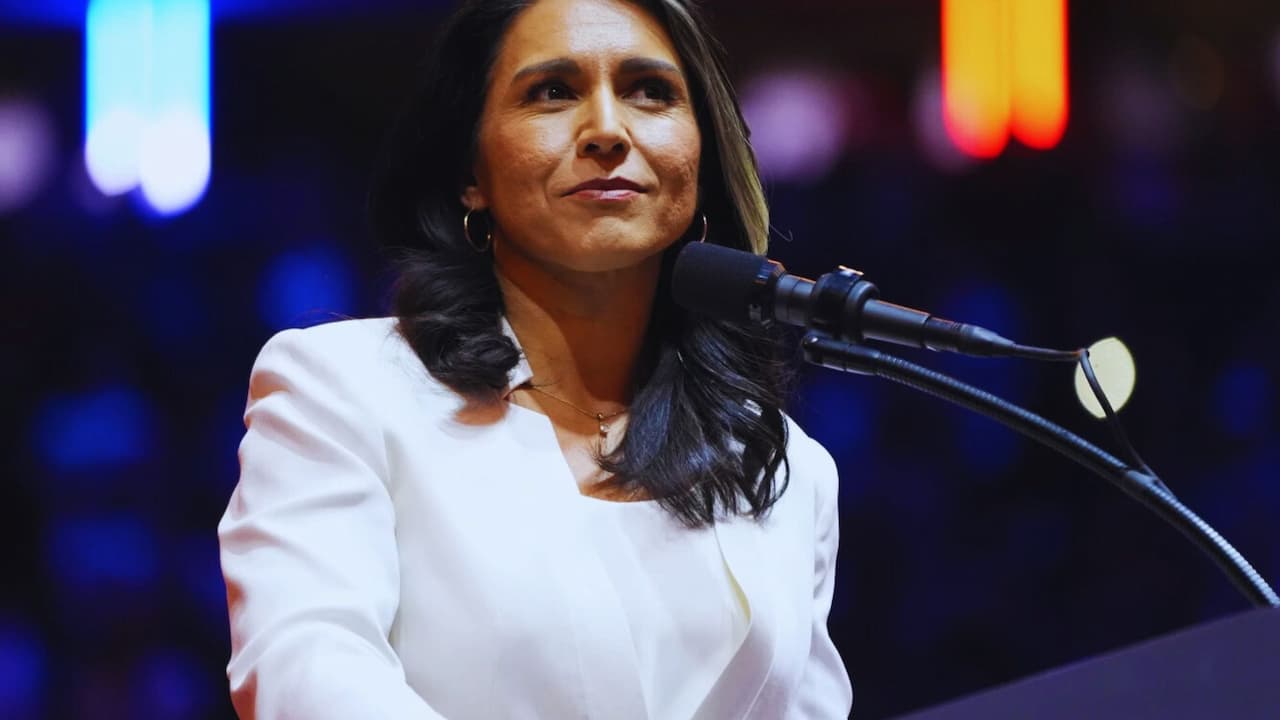Trump’s Intelligence Pick Sparks Fierce Debate: Tulsi Gabbard’s Nomination Draws Battle Lines in Congress
In a dramatic development that has intensified the political divide in Washington, Republican senators are forcefully defending Donald Trump’s controversial choice of Tulsi Gabbard as the next Director of National Intelligence. The nomination has sparked heated exchanges between party leaders and raised questions about national security priorities.
Senator Tammy Duckworth (D-IL) fired the opening salvo on CNN’s “State of the Union,” expressing grave concerns about Gabbard’s fitness for the role. “I think she’s compromised,” Duckworth stated bluntly, pointing to Gabbard’s 2017 meeting with Syrian President Bashar Assad and her positions on Russia.
The Republicans’ pushback was swift and forceful. Senator Markwayne Mullin (R-OK) called Duckworth’s comments “ridiculous and outright dangerous,” highlighting Gabbard’s military service as a lieutenant colonel in the Army National Guard. The exchange underscores the growing tension surrounding the nomination.
Gabbard’s journey from Democratic congresswoman to Trump ally has been remarkable. After serving Hawaii in the House as a Democrat, she announced her switch to the Republican Party last month. Her military credentials include deployments to Iraq and Kuwait, where she earned a Combat Medical Badge in 2005.
The controversy centers on several key issues. Critics point to Gabbard’s 2022 statements about U.S.-funded biolabs in Ukraine, which aligned with Russian justifications for the invasion.
She also suggested that Russia had legitimate security concerns regarding Ukraine’s NATO aspirations. These positions have led some Democrats, including Senator Elizabeth Warren, to claim Gabbard is “in Putin’s pocket.”
Republican defenders, like Senator Eric Schmitt of Missouri, view these accusations differently. “It’s insulting. It’s a slur,” Schmitt argued on NBC’s “Meet the Press,” emphasizing Gabbard’s military service and suggesting the criticism stems from political bias rather than substantive concerns.
The nomination battle reflects deeper divisions about America’s intelligence community. In her recent book For Love of Country, Gabbard warns of a “slow-rolling coup” by the “permanent Washington machine.” This stance has raised eyebrows since she may soon lead part of that very establishment.
Senator James Lankford (R-OK) strikes a more measured tone, acknowledging the need for thorough vetting. During the confirmation process, he plans to question Gabbard about her meeting with Assad and past statements on Russia.
The debate has broader implications for U.S. intelligence relationships. Representative Adam Schiff, newly elected to the Senate from California, warns that allies might hesitate to share information if they doubt the intelligence chief’s judgment. This concern highlights the delicate balance between political appointments and national security interests.
As this political drama unfolds, the nomination battle represents more than a typical partisan fight. It raises fundamental questions about the future direction of American intelligence services, the role of political ideology in national security positions, and the balance between skepticism of government institutions and the need for effective intelligence operations.
The Senate’s handling of Gabbard’s nomination will likely set important precedents for future intelligence leadership appointments. It could significantly influence America’s relationships with allies and adversaries.
